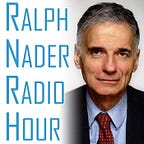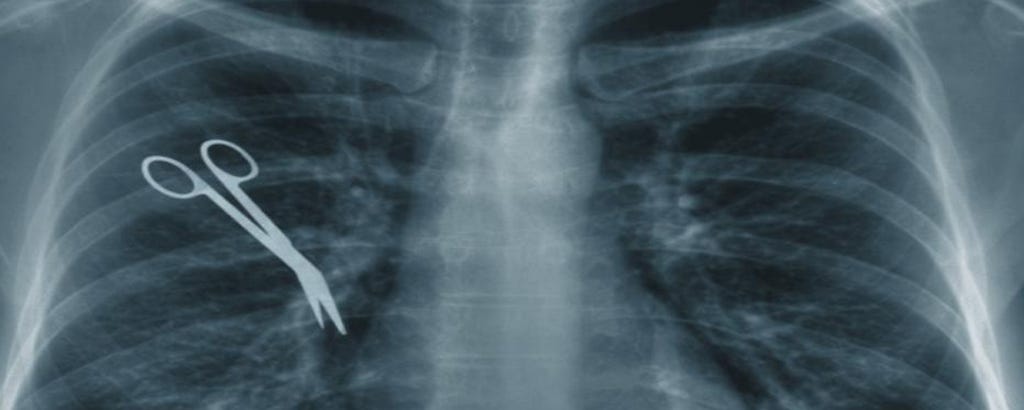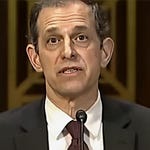Ralph welcomes Michael Saks and Stephan Landsman, authors of “Closing Death’s Door: Legal Innovations to End the Epidemic of Healthcare Harm” about what can be done about the third leading cause of death in America, medical error. And America’s #1 Populist, Jim Hightower stops by to give us the breaking news on Exxon-Mobil’s attempt to break the union movement.
Michael Saks is Regents’ Professor in the College of Law, and the Department of Psychology at Arizona State University. He is the co-author of Closing Death’s Door: Legal Innovations to End the Epidemic of Healthcare Harm.
The healthcare industry causes more serious accidental injuries and deaths than all of the other human activities combined. So, there’s this huge disconnect between the amount of harm done, compared to the amount of money made, compared to the amount of insurance expenditures it takes to cover the costs of the harm.
Michael Saks, co-author of Closing Death’s Door: Legal Innovations to End the Epidemic of Healthcare Harm
Redesigning the system is what the corporate managers are needed to do [to prevent errors]. But the financial incentives work completely against doing that. They would have to invest a lot of money, like bringing in systems engineers. They would have to invest a lot of money to fix these problems. And their reward for doing so would be to watch their revenue drop. Because when patients are harmed, the patients need additional care, and that additional care is additional revenue to the healthcare system.
Michael Saks, co-author of Closing Death’s Door: Legal Innovations to End the Epidemic of Healthcare Harm
Stephan Landsman is Emeritus Professor of Law, and Organizer and Director of the Clifford Symposium on Tort Law and Social Policy at the DePaul University College of Law. He is the co-author of Closing Death’s Door: Legal Innovations to End the Epidemic of Healthcare Harm.
It’s certainly been a focus of ours, that the $250,000 cap on non-out-of-pocket damages is a gross sort of harm to specific groups of patients… If you’re a working person and you have a clear income stream that’s interfered with, you’re going to be able to recover if you are harmed in ways that take you out of the workforce. If you are elderly, if you work at home and take care of your children, if you are indeed a child, you don’t have a stream of income. Therefore, the only kinds of claims you’re going to be able to make are claims for the actual treatment costs and for pain and suffering. If you make that limited to $250,000– and that was in the early 1970s, so you can imagine what inflation has done to it– you don’t have a claim that is worth litigating with respect to the perspective of almost any lawyer. So, what you’re saying is, if you’re elderly, if you’re a child, if you’re a work at home mom or dad, you are not going to be able to go to court. No matter how bad a job was done in treating you.
Stephan Landsman, co-author of Closing Death’s Door: Legal Innovations to End the Epidemic of Healthcare Harm
[Our take is] that doctors face a very challenging sort of job. And that our own appraisal of where the damage often arises from is not because of the individual doctor so much. It is because of the system. That they’re tied into a system that doesn’t take care, doesn’t gather data, doesn’t share problems, doesn’t honestly discuss. And that, then, if there is a problem, and if it becomes salient, then the doctor has to stand alone. She’s going to be blamed in a medical malpractice suit. When the reality is that with better support, with better feedback, with better training, with more decency, you would not have those kinds of errors, but a system that was striving to correct itself. But the doctors have created a culture– a system– where now they are exposed and not effectively supported.
Stephan Landsman, co-author of Closing Death’s Door: Legal Innovations to End the Epidemic of Healthcare Harm
Jim Hightower is a syndicated columnist, national radio commentator, and America’s Number One populist. He has written many books including Swim Against the Current: Even a Dead Fish Can Go With The Flow. Mr. Hightower is a board member of Public Citizen. He is also a founding member of Our Revolution, an organization inspired by the issues brought up in the Bernie Sanders campaign. Along with that, he writes a monthly newsletter called the Hightower Lowdown.
[The ExxonMobil lockout’s] impact is so humongous that you can’t imagine that we’re not standing up to this. Because it goes way beyond Beaumont, way beyond Exxon, and way beyond the union movement, even. This is about the middle class. If they can bust this union and good paying jobs, like Exxon Mobil has had… then that’s where inequality comes from. It’s not by accident. It didn’t come in on the breeze. It comes from actions by CEOs like Darren Woods, who said we’re going to bust the union.
Jim Hightower, writer of The Hightower Lowdown
The comment line for the White House is 202-456-1111… and just ask Joe Biden to brief himself on the Beaumont lockout by ExxonMobil that affects unions and the middle class all over the country and take a stand. After all, he calls himself –quote– a Union guy — end quote.
Ralph Nader















